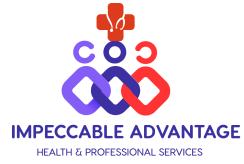As our loved ones age, subtle changes in their behavior and physical health can indicate the need for additional support. Recognizing these signs early can ensure they receive the care they need to maintain their quality of life.
1. Decline in Personal Hygiene
If your loved one is neglecting personal grooming, wearing soiled clothes, or has an unkempt appearance, it may indicate difficulties in managing daily self-care routines.
2. Unexplained Weight Loss
Sudden or significant weight loss can be a sign of underlying health issues, difficulty preparing meals, or loss of appetite.
3. Forgetfulness and Memory Issues
Frequent forgetfulness, such as missing appointments or forgetting to take medications, can compromise safety and well-being.
4. Mobility Challenges
Struggling with walking, frequent falls, or difficulty navigating stairs can indicate the need for mobility assistance.
5. Neglected Household Maintenance
A once tidy home becoming cluttered or dirty may suggest that household tasks are becoming overwhelming.
6. Social Withdrawal
Loss of interest in social activities or avoiding interactions can be a sign of depression or cognitive decline.
7. Difficulty Managing Medications
Confusion about medication schedules or missing doses can lead to serious health complications.
8. Changes in Mood or Behavior
Increased irritability, mood swings, or uncharacteristic behaviors may indicate emotional distress or mental health issues.
9. Poor Nutrition
Relying on processed foods, skipping meals, or lack of proper nutrition can affect overall health.
10. Caregiver Stress
If family members are feeling overwhelmed or burnt out, it may be time to seek professional in-home care support.

